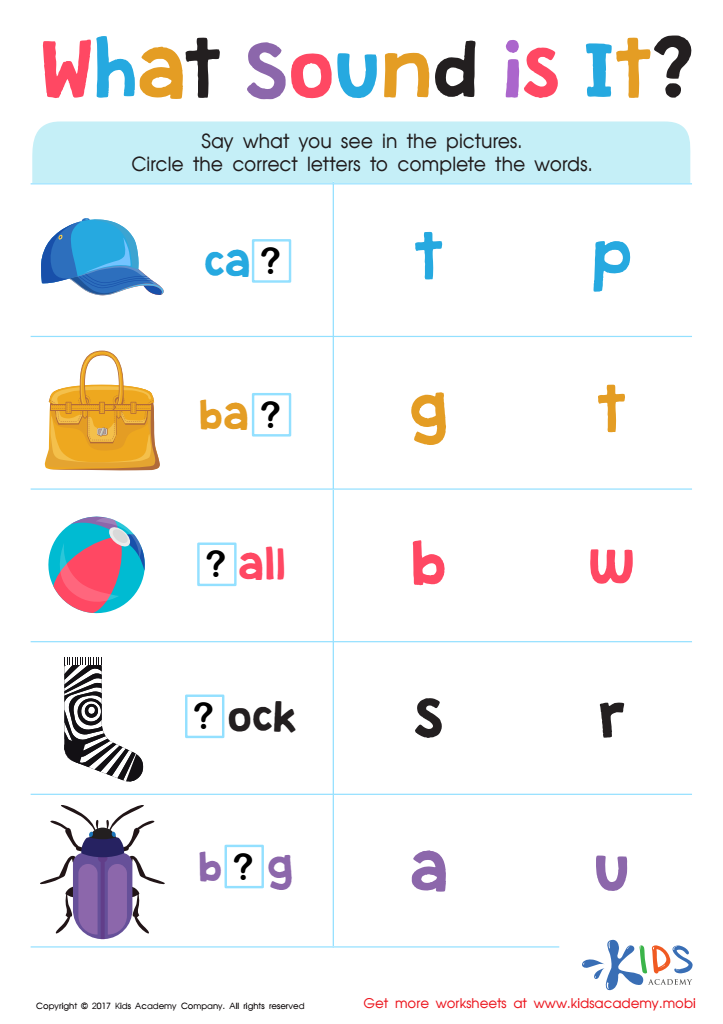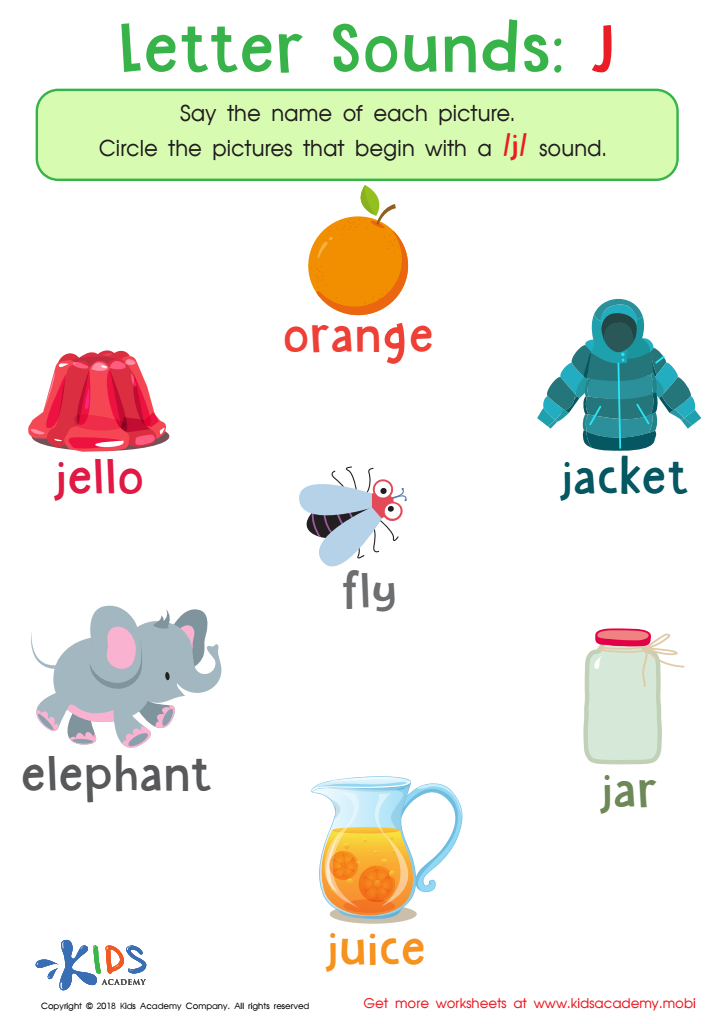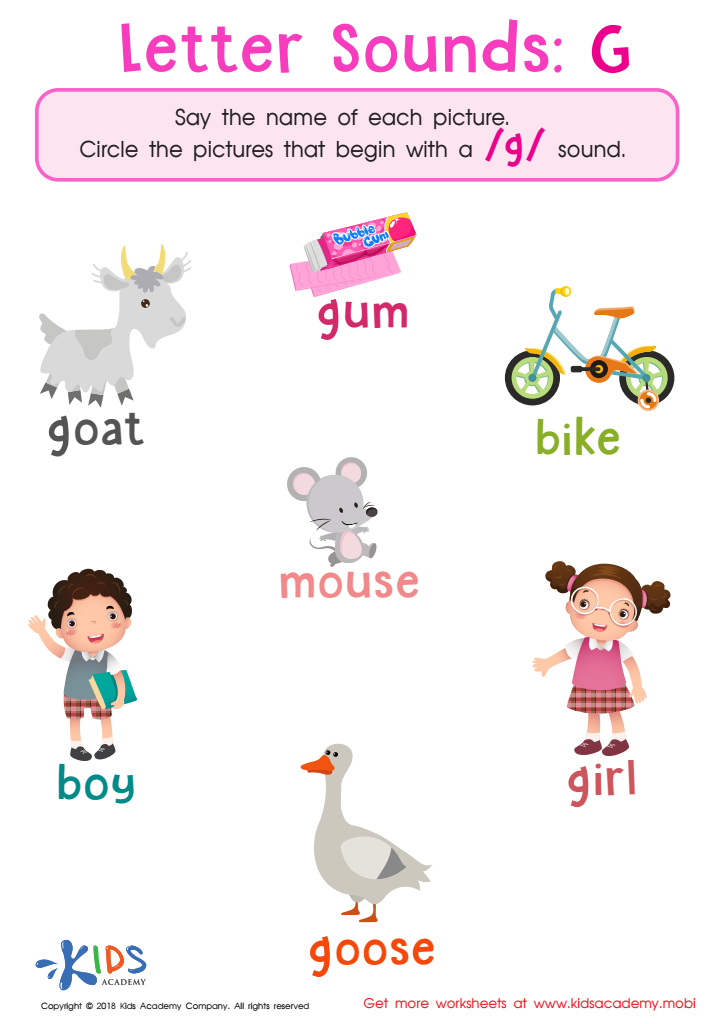Reading skills development Letter Sounds Worksheets for Ages 4-9
3 filtered results
-
From - To
Unlock your child's reading potential with our engaging Letter Sounds Worksheets, designed specifically for ages 4-9. These worksheets focus on essential reading skills development, helping young learners recognize letters and their corresponding sounds through fun and interactive activities. Each worksheet features colorful visuals and playful exercises that capture children's attention while reinforcing phonetic awareness. From letter-sound matching to fun repetition tasks, our resources encourage a solid foundation for early literacy. Perfect for both classroom and home use, our Letter Sounds Worksheets will nurture your child's confidence and enthusiasm for reading. Start your child's literacy journey today and watch them flourish!


What Sound Is it? Worksheet


Letter Sounds: J Printable Worksheet


Letter G Sounds Worksheet
Reading skills development, particularly letter sounds, is crucial for children ages 4-9. This foundational stage lays the groundwork for successful literacy and overall academic achievement. Understanding letter sounds, also known as phonemic awareness, enables children to decode words, a skill essential for reading fluency. When children grasp how letters correspond to sounds, they become more confident readers, leading to a greater love of learning.
Parents and teachers play a vital role in fostering this developmental milestone. Engaging activities, such as singing alphabet songs, reading aloud, and using interactive games, can make learning letter sounds enjoyable. This support not only enhances children’s phonics knowledge but also strengthens their vocabulary and comprehension skills.
Moreover, strong reading skills are linked to broader cognitive and social development. Children who are confident readers are more likely to participate in class discussions, express their ideas effectively, and write with clarity. Consequently, nurturing letter sound recognition cultivates independent thinkers and lifelong learners. As reading skills develop, children gain access to a world of knowledge, creativity, and imagination. Therefore, investing time and resources in early reading development is critical for both parents and teachers to ensure children's future success and well-being.
 Assign to My Students
Assign to My Students














